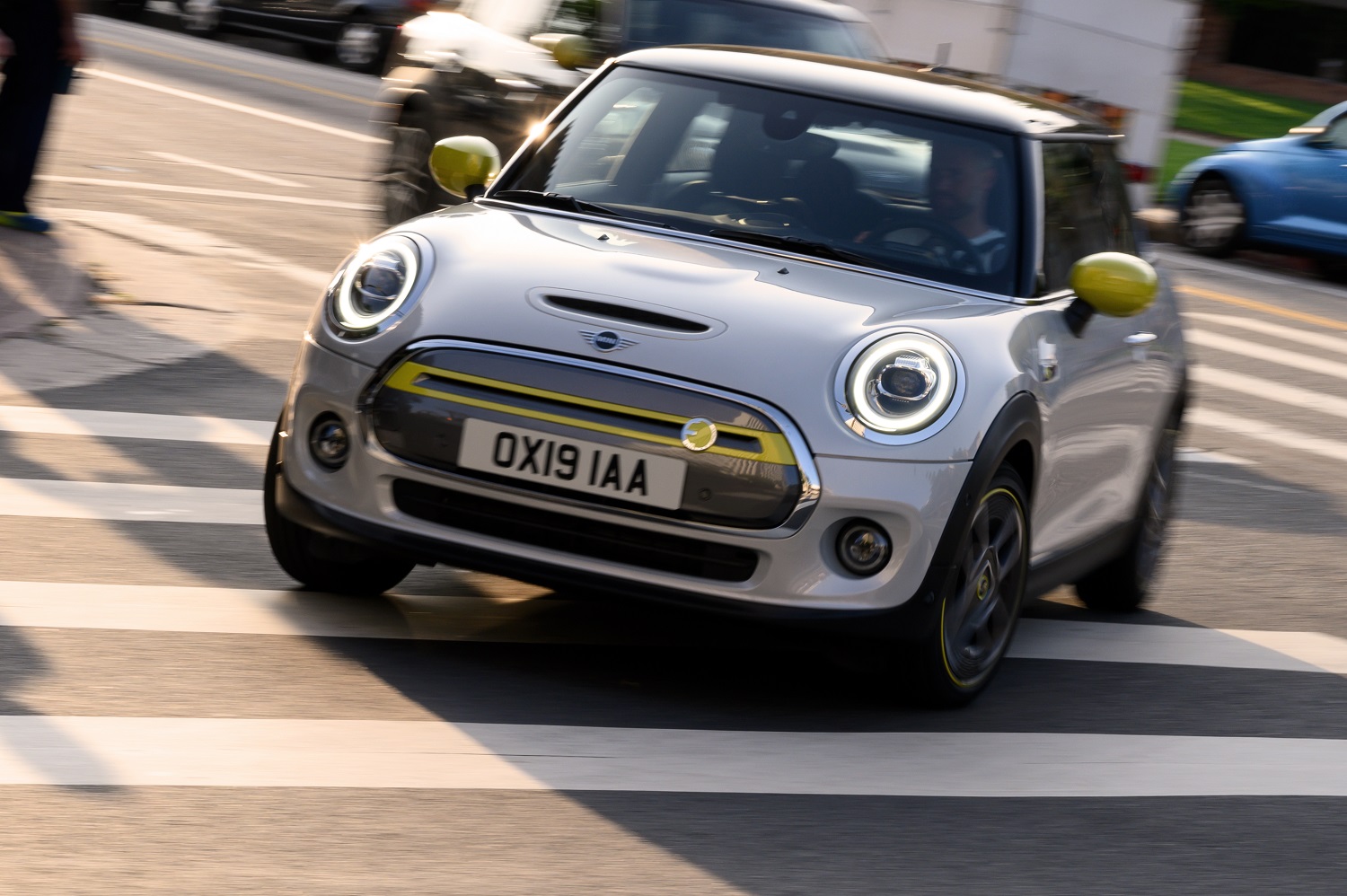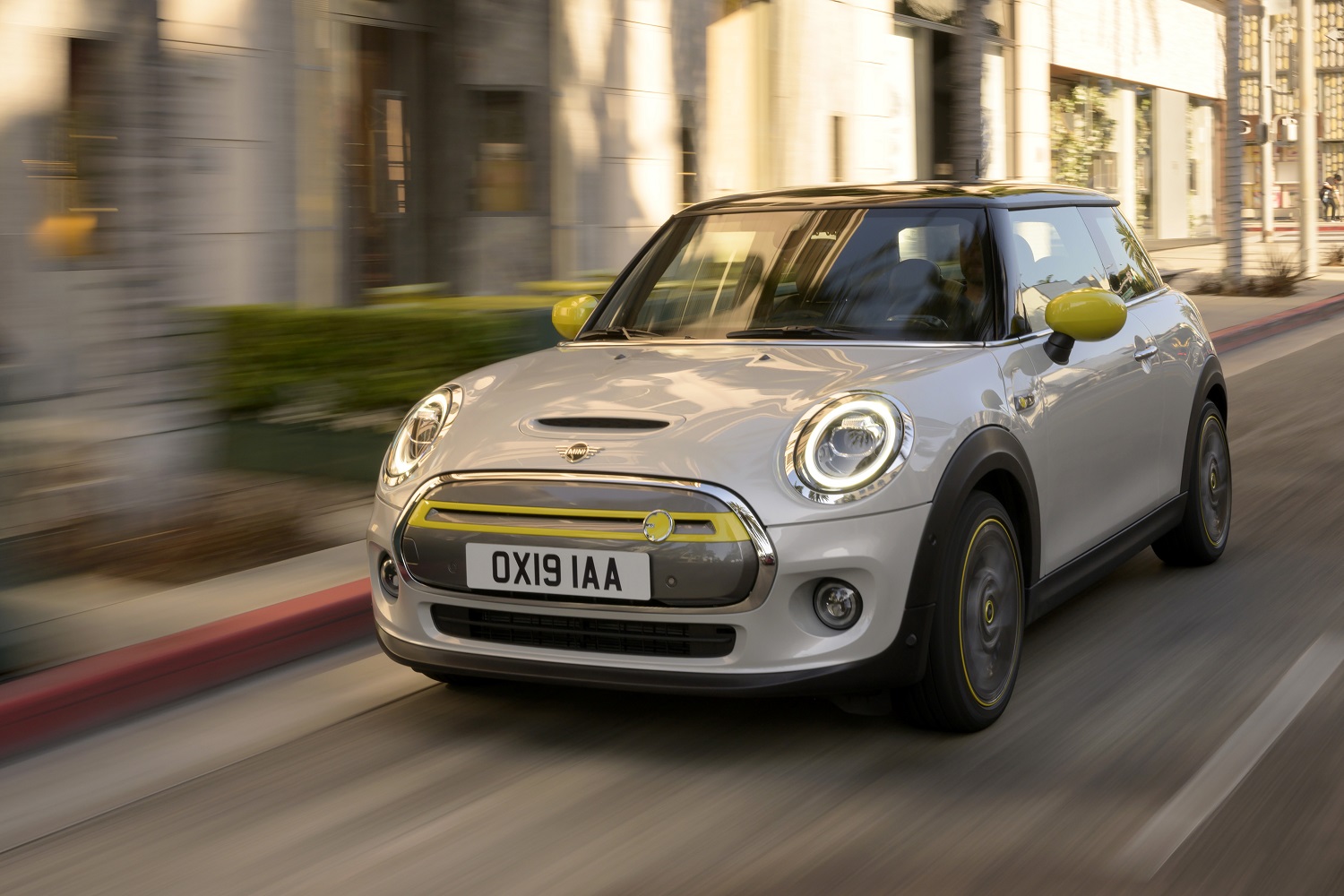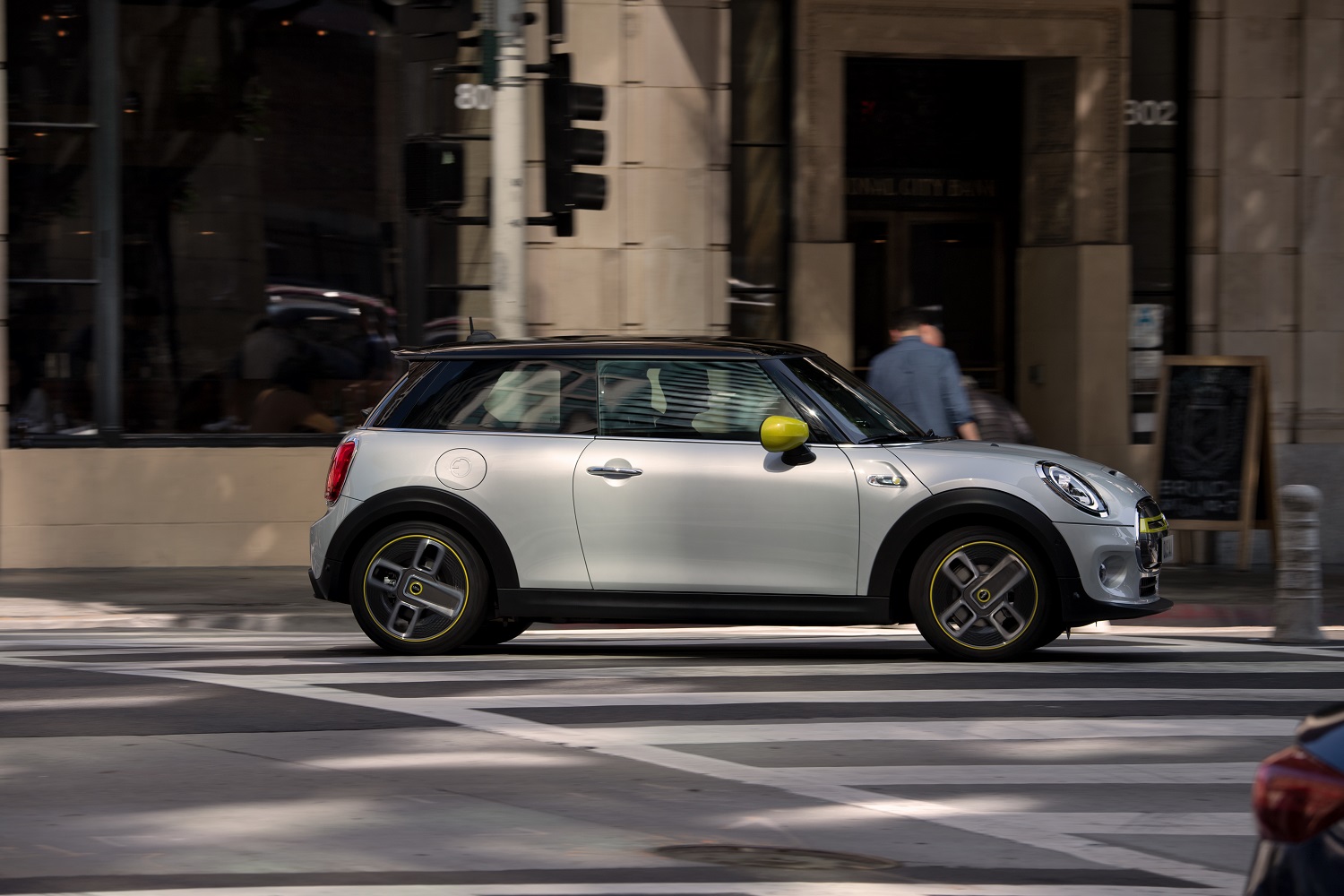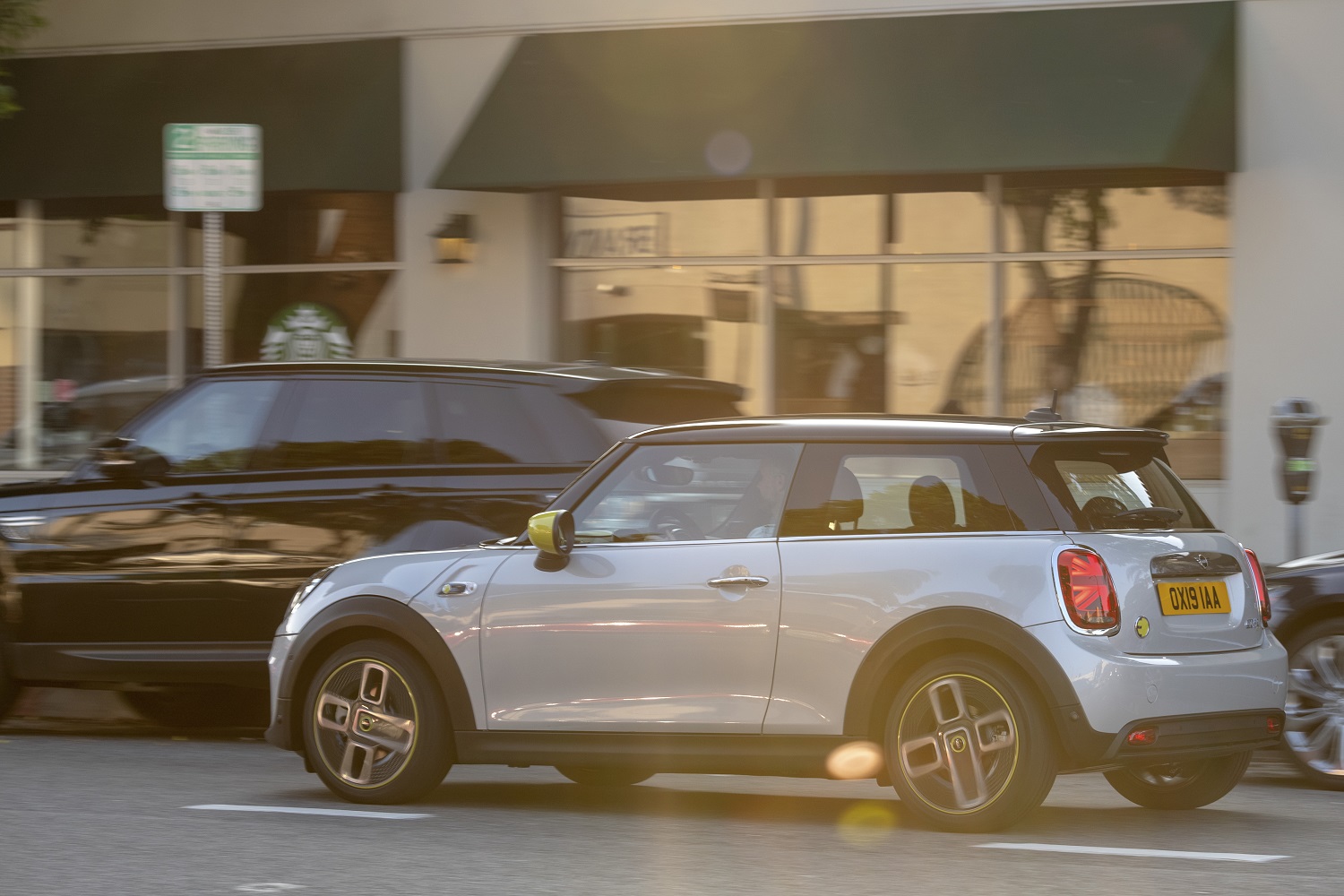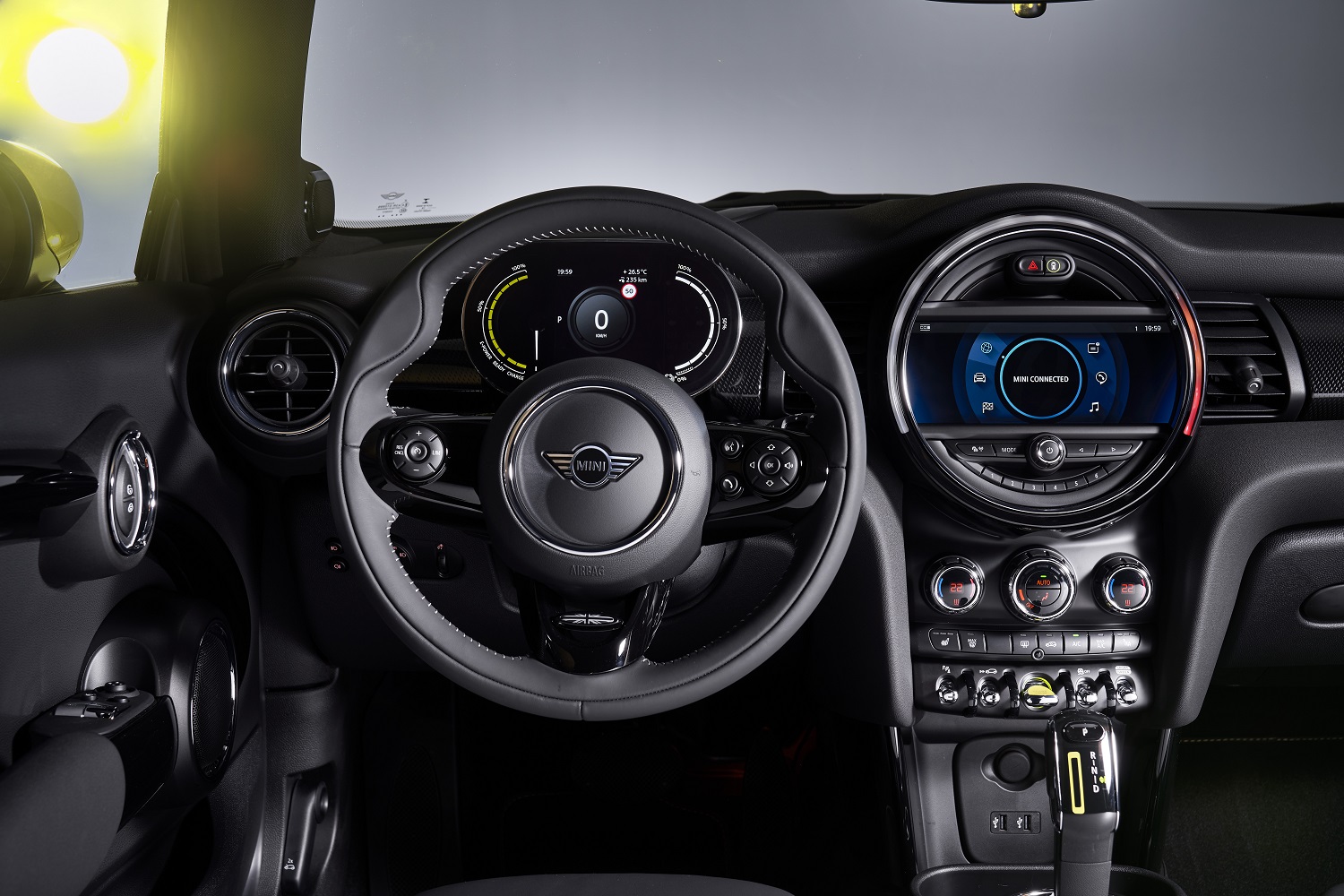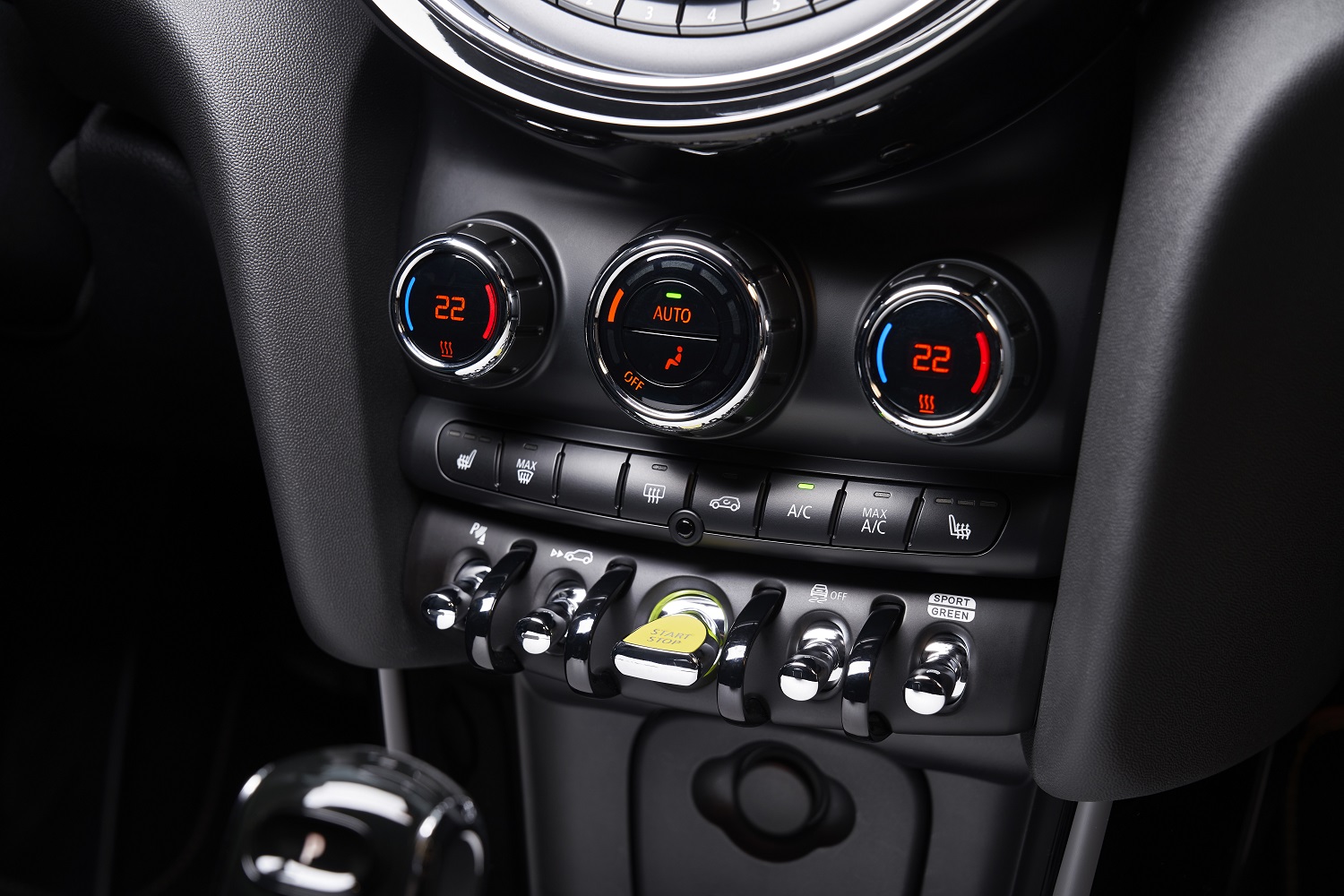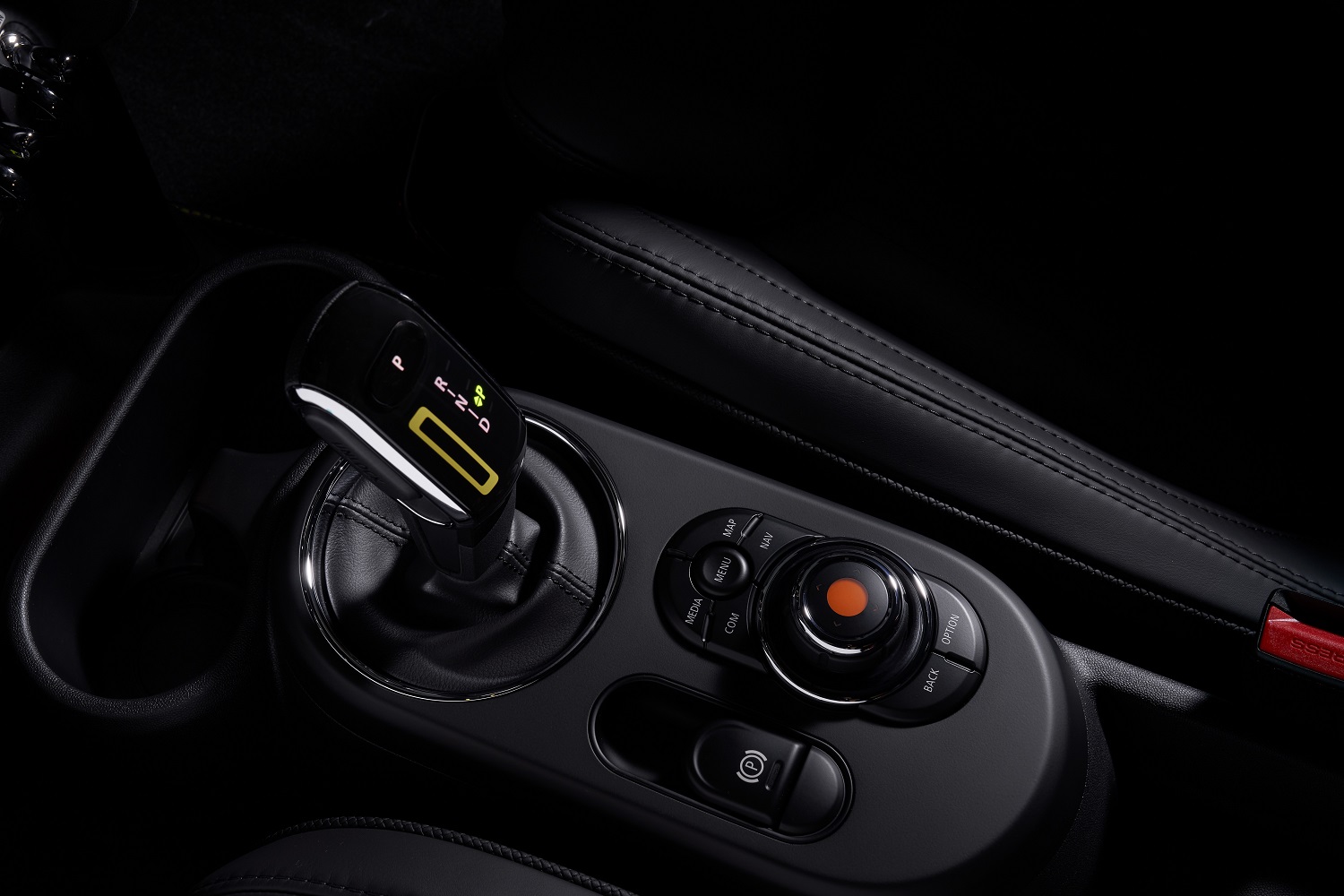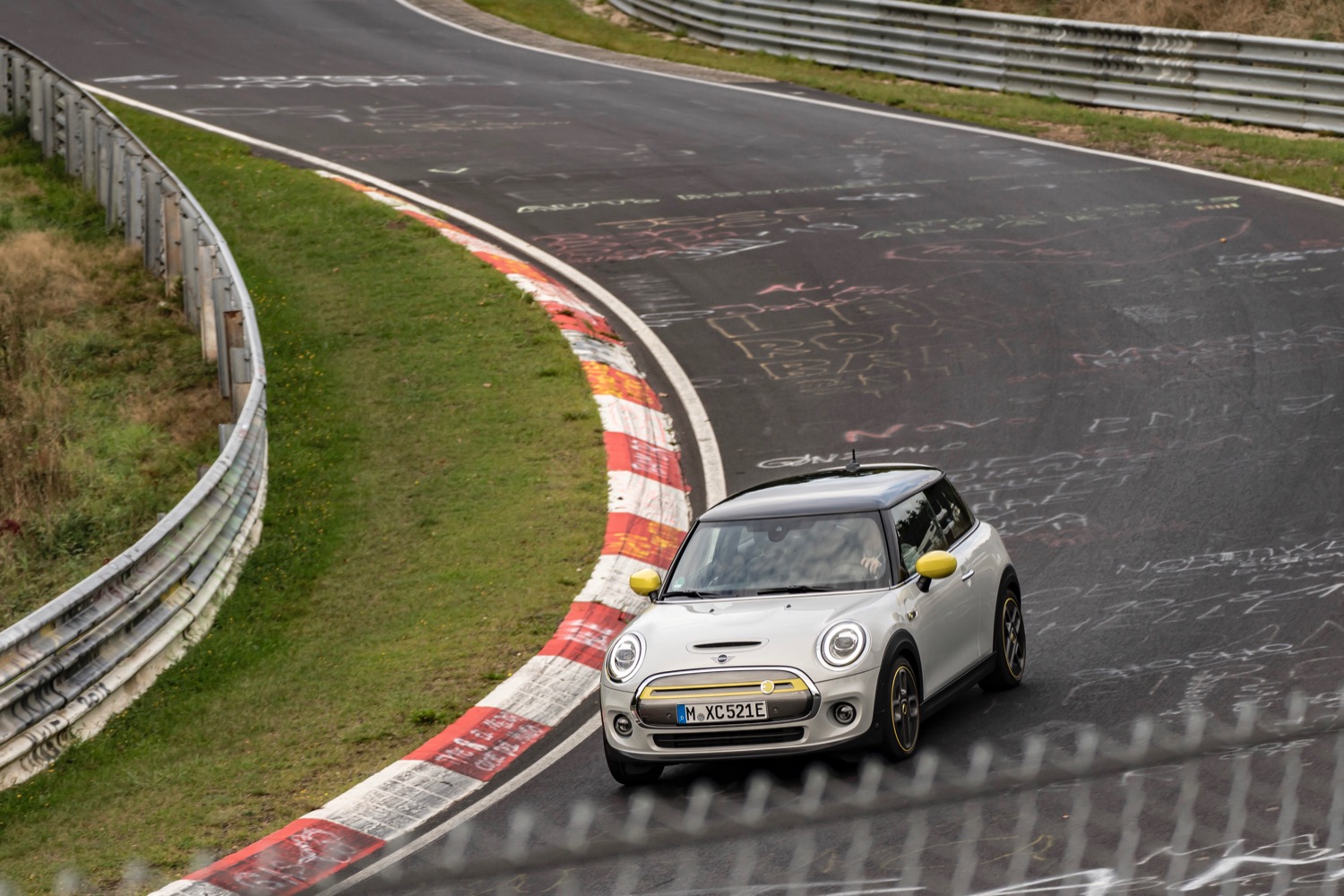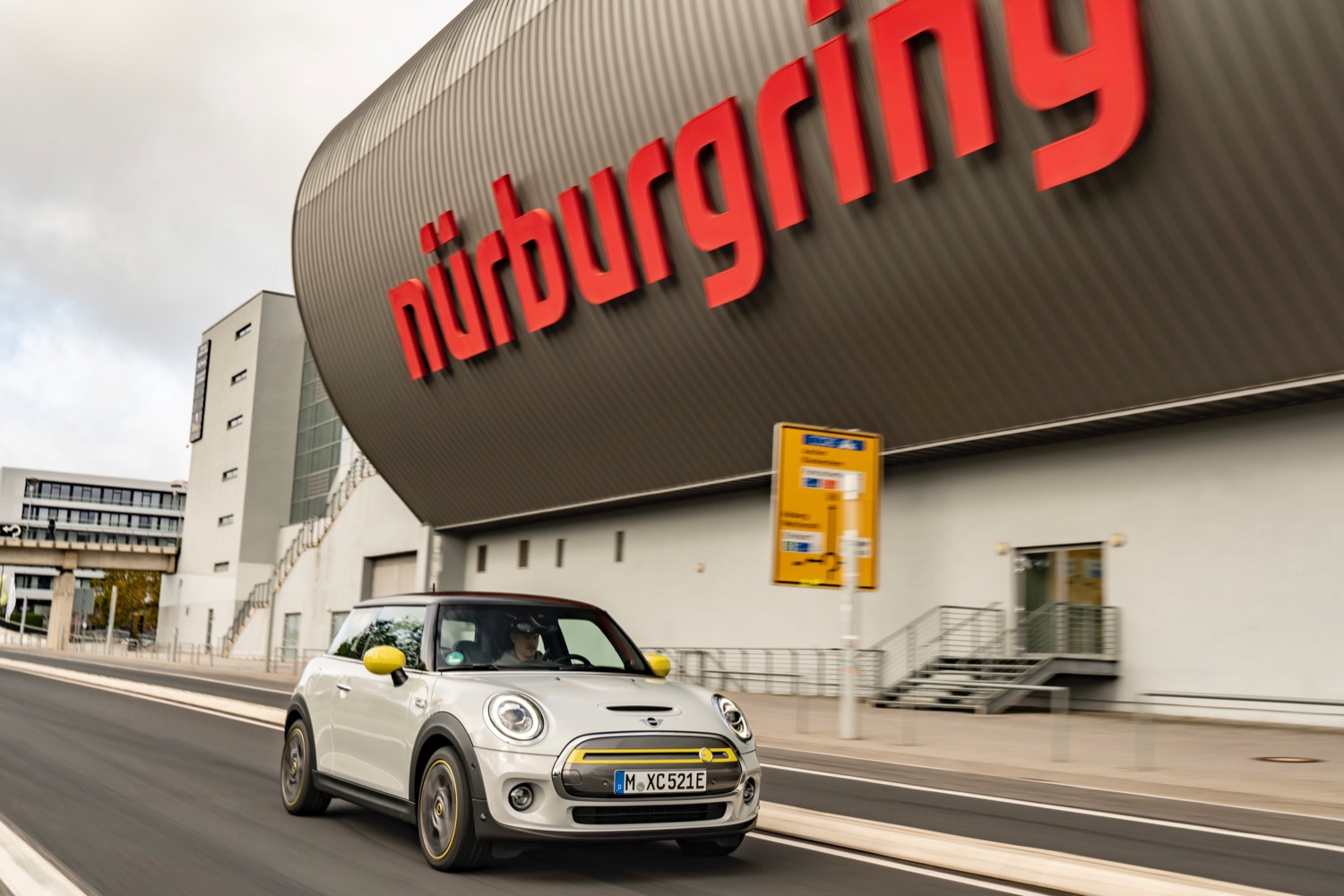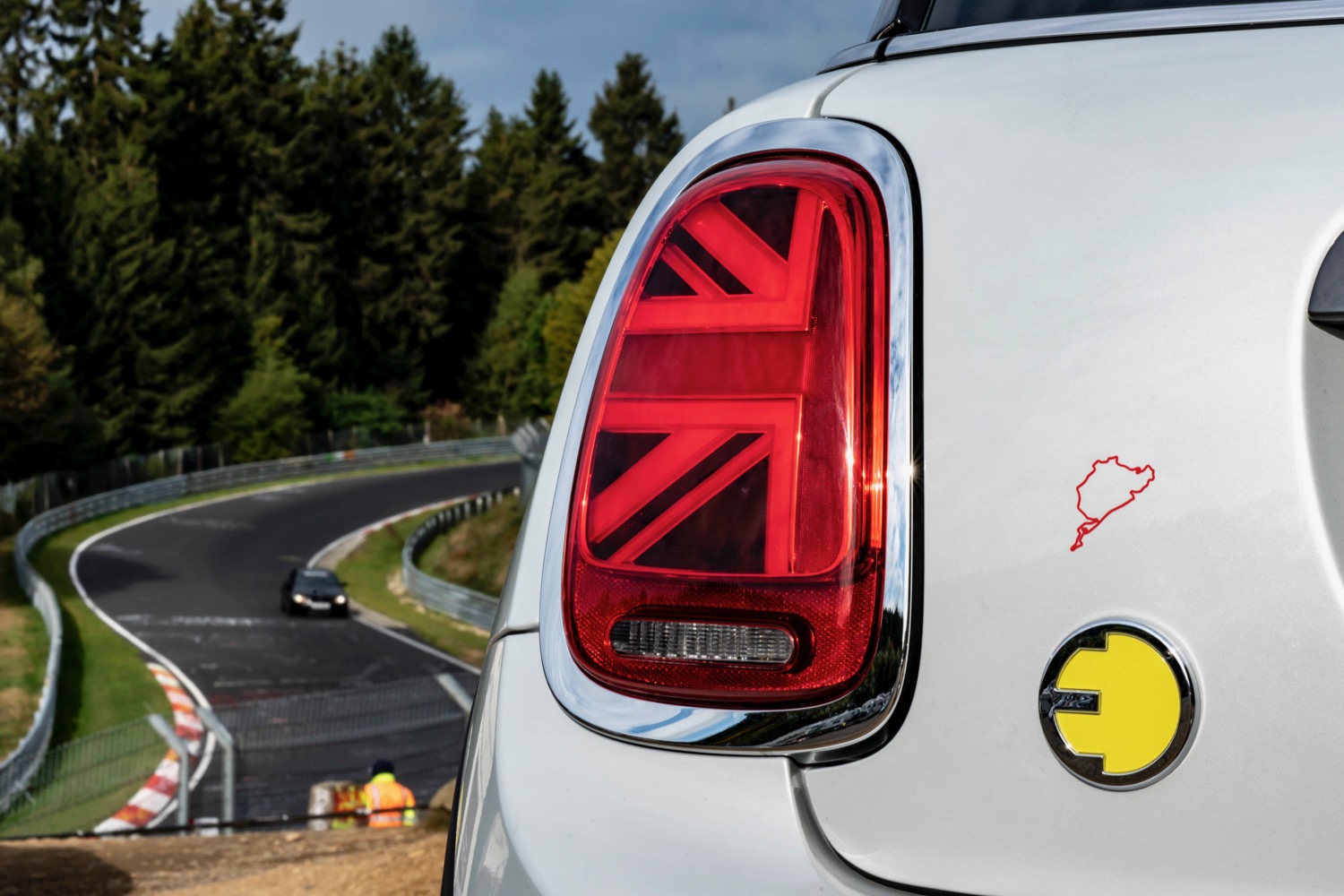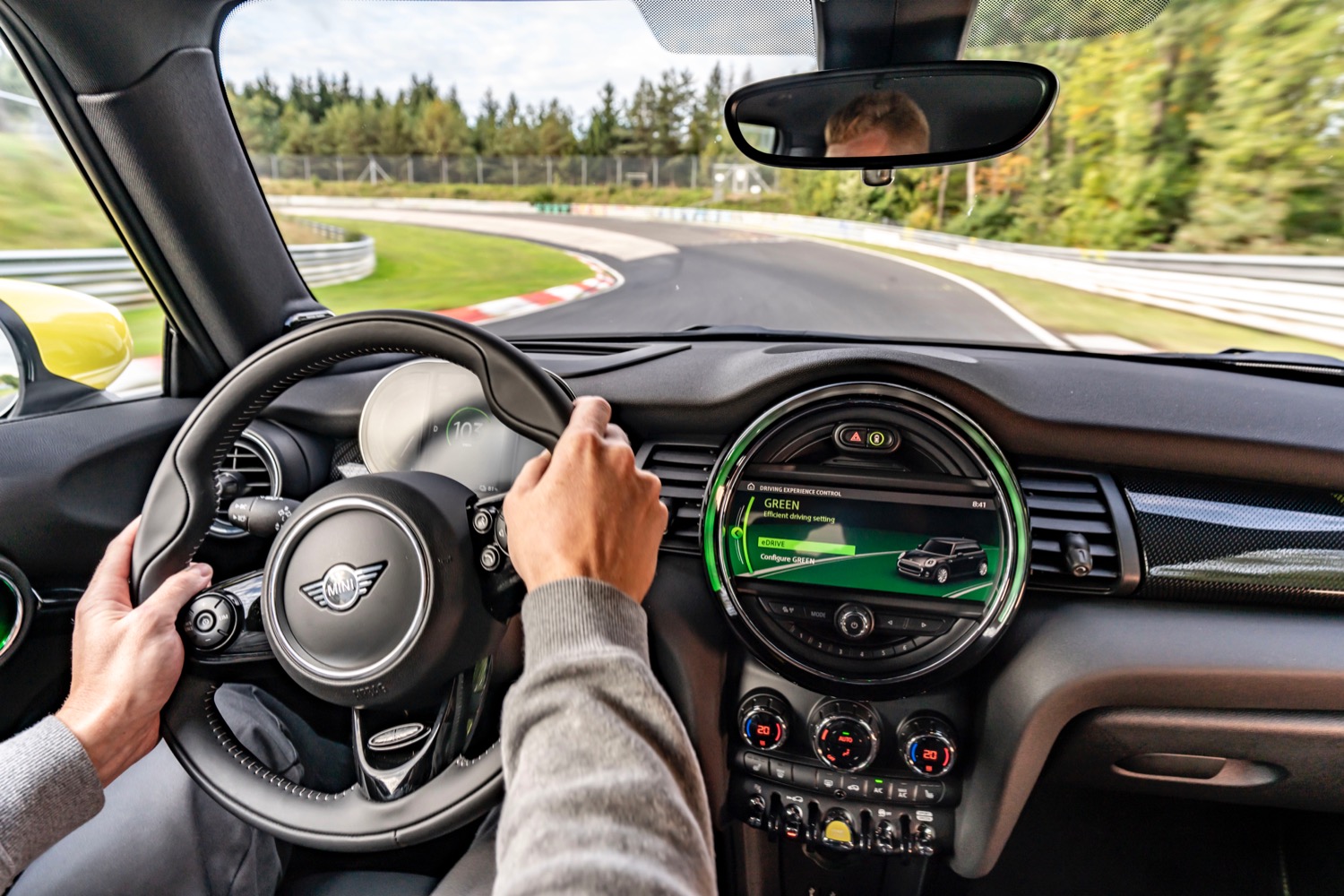Details about the Cooper SE, Mini’s first regular-production electric model, are beginning to trickle out as its launch nears. The BMW-owned company released a preliminary driving range estimate, and it’s much lower than we were expecting.
The pocket-sized electric car is capable of driving for up to 110 miles between charges, according to Autoblog. Mini has repeatedly stressed it never envisioned the Cooper SE as a long-distance cruiser, even the gasoline-powered model isn’t tailored to crossing continents on a regular basis, but 110 miles is much lower than we expected. It’s an estimate, as the Environmental Protection Agency (EPA) still hasn’t tested the car, but the final figure won’t be drastically different.
It could be worse: at 84 miles, the Fiat 500e offers the shortest driving range of any electric car sold new in the United States in 2019. The electric variant of the Honda Clarity checks in at 89 miles. It could also be far better. The Nissan Leaf has a 150-mile range in its most basic configuration, and the Hyundai Ioniq can drive for up to 170 miles. Both fall in the same price bracket as the Mini SE, though they’ll appeal to different buyers because they’re less stylish and not as powerful.
For urban-dwelling motorists who charge at home, the 110-mile range likely won’t be an issue. They’ll leave their house every day with a full charge. Those who don’t have access to a private charging station, or those who need to go on longer trips, will need to use any of the 19,000-plus chargers scattered across America. Mini noted an 80% charge takes as little as 36 minutes when users plug their Cooper SE into a 50-kilowatt charger.
Porsche found itself in a similar situation with the Taycan; its 201-mile range is shockingly low. That number comes from the EPA, so the company’s American division hired an independent testing company named AMCI to perform separate tests. The verdict? 275 miles between charges, according to AMCI’s testing cycle. Mini hasn’t indicated whether it will follow Porsche’s path and commission an independent test to provide an alternative number. We’ll update this story if it does.
Mini also published additional information about how it plans to sell the Cooper SE. Still according to Autoblog, the lineup will include three trim levels named Signature, Signature Plus, and Iconic. They’re priced at $29,900, $33,900, and $36,900, respectively, meaning the cheapest electric Cooper costs $6,500 more than the entry-level, gasoline-powered model. Some buyers are eligible for a $7,500 federal tax credit, so the electric model could suddenly look like the budget-friendly choice for motorists in the market for a Mini if they’re willing to settle for a short range, at least.
The entry point into the Cooper SE range comes standard with a 6.5-inch touchscreen in the center console where the speedometer was on the original model, navigation, Apple CarPlay compatibility, heated front seats, LED lightning all around, and a generously packed bundle of electronic driving aids. Android Auto isn’t available, and Mini hasn’t decided whether it will make the feature available. Parent company BMW is rolling it out for the 2020 model year.
